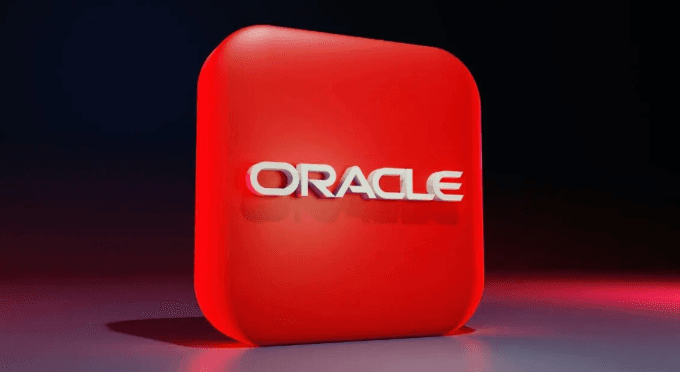Should You Follow Warren Buffett and Buy UnitedHealth (UNH)?


When Warren Buffett makes a move, investors pay attention...
Last week, health care giant UnitedHealth (UNH) made headlines thanks to a surprise purchase from Buffett's investment firm, Berkshire Hathaway (BRK-B).
Berkshire revealed that it bought more than 5 million shares of UNH in the second quarter. That's worth about $1.5 billion as of Friday's close.
Berkshire's stake is only about 0.5% of UnitedHealth's total market value of $275 billion. Still, UNH soared on the news. Shares jumped more than 10% on Friday and hit a one-month high.
The reason is simple... Buffett is one of the world's most famous and most-followed investors.
Between 1965 and the end of 2024, Berkshire Hathaway achieved a return of 5,502,284%... an average annual return of 19.9%. Meanwhile, the S&P 500 Index "only" returned 39,054% (for an average return of 10.4% per year).
In short, folks have learned that Buffett's ideas pay off. But should you follow Buffett and buy UNH shares today?
First, let's dive into what UnitedHealth does...
A Health Insurance Giant With a Massive Customer Base
UnitedHealth is the largest managed care organization ("MCO") in the U.S. by revenue.
Its main product is health insurance. It covers tens of millions of people through employers, the state and federal governments, Medicare and Medicaid, and more.
The company has two operating segments: UnitedHealthcare and Optum.
UnitedHealthcare is the insurance part of the business. It currently serves more than 50 million people. So far in 2025, this arm of the company has brought in $171 billion in sales – up more than 14% from the first half of last year.
Optum, on the other hand, is a more wide-ranging business. Optum is made up of three units:
- Optum Health – Businesses that directly provide patient care. For example, the company employs or works with doctors across primary care, urgent care, and outpatient surgical facilities.
- Optum Insight – UnitedHealth gathers massive amounts of health care data as part of doing business. So, Optum Insight takes that data and builds it into technical and predictive tools. It then sells these tools to clients across the health care supply chain. The information is all anonymized and used for analysis only.
- Optum Rx – This is the company's pharmacy benefit manager ("PBM") business. PBMs are essentially middlemen between drugmakers and insurance companies, negotiating lower prices and handling reimbursements. This business serves UnitedHealth's insurance customers as well as other entities that need access to medication.
How Backlash Sparked a UNH Stock Sell-Off
Buying UNH might not seem like the obvious choice for a pro like Buffett today. That's because UnitedHealth has been going through a rough patch.
After hitting an all-time high in November, the stock has been cut in half – wiping away more than $250 billion in market cap.
There are several reasons for this...
First, the health insurance sector suffered major backlash for claim denials after the murder of UnitedHealthcare CEO Brian Thompson in December. Patients railed against the company for using prior authorization requirements to refuse coverage for care.
Then, in February this year, the Department of Justice launched an investigation into the company's billing practices for Medicare Advantage patients. The agency is accusing UnitedHealth of miscoding some information to receive higher payments from the government.
UnitedHealth responded to the Justice Department's probe in a July 24 press release...
The Company has a long record of responsible conduct and effective compliance. Independent [Centers for Medicare & Medicaid Services] audits confirm that the Company's practices are among the most accurate in the industry, and, following a decade-long civil challenge by the Department to aspects of our Medicare Advantage business, a court-appointed Special Master concluded there was no evidence to support claims of wrongdoing.
Between the two incidents, the company's reputation took a hit. Then came the financial troubles...
UnitedHealth reported a large earnings miss in April this year. It blamed higher-than-expected medical costs for the poor performance. A month later, it pulled its earnings outlook for the rest of the year – and announced a change of CEO.
With new CEO Stephen Hemsley in charge, UnitedHealth republished its annual outlook in its second-quarter earnings release. But its guidance was still disappointing...
The 2025 earnings estimate of $16 per share was well below Wall Street's estimate of nearly $21 per share. And the sales forecast of $448 billion was also just short of what Wall Street analysts were expecting.
Put it all together, and you get a lot of uncertainty. Everyone's waiting to see how the government investigation could impact UnitedHealth's Medicare business (which makes up about 25% of the company's overall sales)... and whether this underperformer can turn itself around.
Up until recently, investors have been happy to sell their shares and wait on the sidelines for clarity.
But investing based solely on emotion is never a good idea. And for this stock, the fear may have already run its course...
The 'Smart Money' Is Loading Up on Shares
UnitedHealth might seem hard to love. But the big money managers have gotten interested.
Buffett's stake may be just a small portion of UnitedHealth's market cap... But it's still reportedly the 25th-biggest position in the Berkshire portfolio, behind Amazon (AMZN), Constellation Brands (STZ), and Capital One Financial (COF).
Buffett is famous for value investing. His firm is built on scooping up investments with long-term upside when they're trading at incredible discounts. That's likely a major reason for the buy (more on this later).
Importantly, though, Buffett isn't the only one who has seen a buying opportunity in UnitedHealth shares.
Investors look at lots of hedge funds to see what the "smart money" is doing. These are the professionals who know the market best. And lately, several other high-profile hedge funds have made the same move into UNH...
Billionaire investor David Tepper added UNH in the second quarter – buying up 2.3 million shares (about $700 million worth as of Friday's close). And Michael Burry, who made his name shorting the housing market before the 2008 bust, bought 350,000 call options on UNH (betting on the stock price to go higher).
Not only that, but insiders at UnitedHealth are bullish, too...
In May, when UNH fell more than 33%, corporate insiders at UnitedHealth loaded up on the stock. They bought more than $30 million worth of shares on the open market – and sold none.
That includes the company's chief financial officer buying $5 million worth of shares... and a $25 million buy from Hemsley just three days after he took over as CEO.
Insider buys can tell us a lot about management's outlook. Insiders know the most about a company's inner workings and how the business is performing. When they're buying, it shows they believe in the business – and they're willing to put skin in the game.
Right now, insiders (as well as big money managers) see UNH as a good buying opportunity.
But what about individual investors?
Is UNH a Good Stock a Buy Today?
For answers, we turn to our proprietary Stansberry Score...
As you can see, UnitedHealth gets an overall score of 68, which is a B grade overall. The stock gets a B grade for both its financials and capital efficiency, while getting an A grade for valuation.
At a price-to-earnings (P/E) ratio of 13, UnitedHealth is trading at a massive discount to the S&P 500's P/E ratio of 27. And it's nearly half the valuation of the broader health care sector, as measured by the Health Care Select Sector SPDR Fund (XLV).
The stock is also cheap relative to its own history. Its P/E ratio is trading near its lows of the past decade.
So we agree with the Stansberry Score's A rating for valuation. And from a value standpoint, this stock is a classic Buffett opportunity. It has plenty of room to rise from here.
However, UNH still hasn't earned the "Momentum Bonus" we see in stocks that are in uptrends. Troubled stocks can always keep falling. And while this business isn't going anywhere (people will always need health care), we're hesitant to try and "catch a falling knife."
That's why our colleague, True Wealth editor Brett Eversole, recommends stocks that are "cheap, hated, and in an uptrend." It's a way to reduce your risk by confirming that you're right before getting in.
For UNH, that time isn't here yet. But it could be soon...
UNH shares just closed above their 50-day moving average for the first time since April. That's a measure of the short-term trend. However, it's still early – the stock could very well fall right back below that threshold in the days to come.
Investors should wait for the uptrend to solidify. Stansberry's Investment Advisory editor Whitney Tilson recommended the same thing in his dive into UnitedHealth in Friday's edition of his free daily e-letter.
For now, UnitedHealth is one to keep on your watch list... And when we get an established uptrend in the stock, that may be the perfect time to buy.
Good investing,
Nick Koziol




